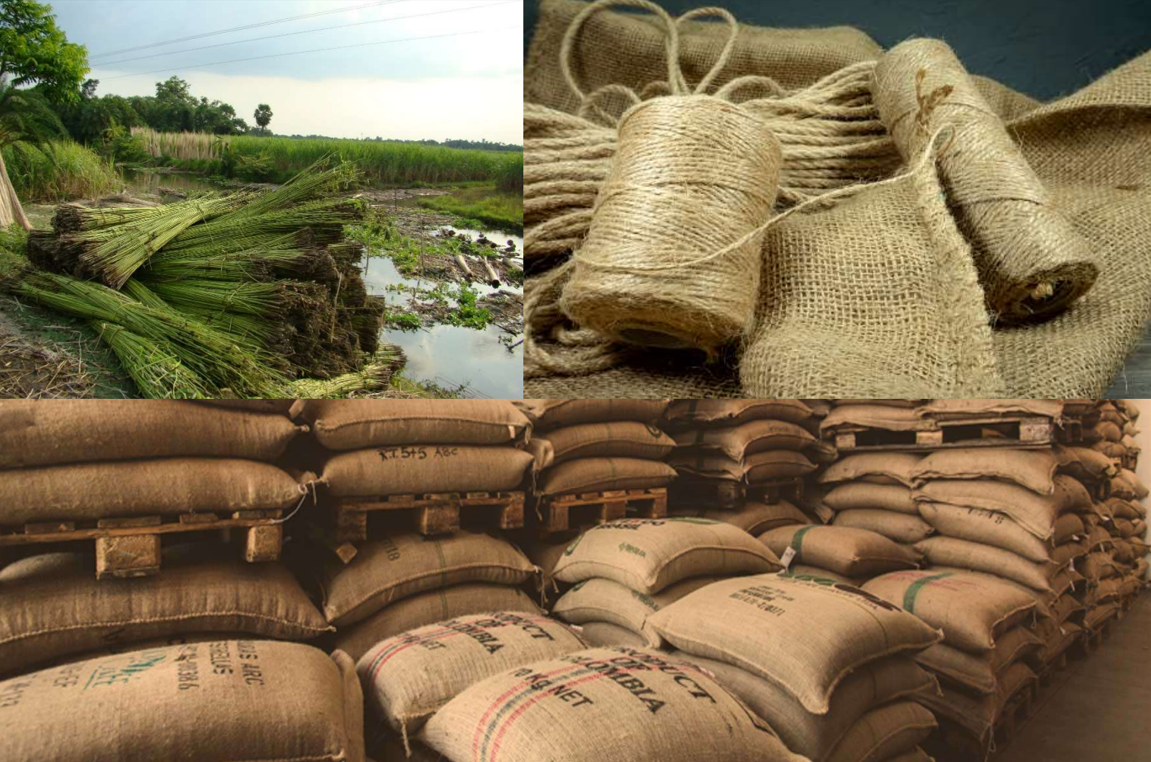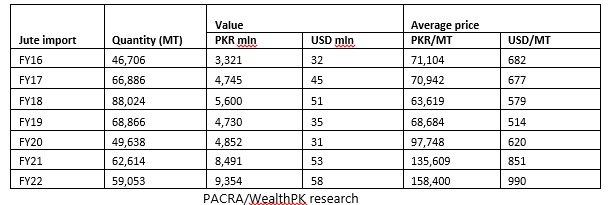INP-WealthPk
By Arsalan Ali
The market size of the jute industry reached Rs31.650 billion in the fiscal year 2021-22, up from Rs27.826 billion in the previous year, representing 14% growth, WealthPK reported.

A research conducted by Pakistan Credit Rating Agency Limited (PACRA) on jute highlighted the duty structure implemented by the government to provide protection to local jute mills.
There are five mills named Thal Limited, Sargodha Jute Mills, Indus Jute Mills, White Pearl Jute Mills, and Madina Jute Mills that are functional in Pakistan. Pakistan is almost entirely dependent on Bangladesh for its import of raw jute.
The research said that during FY22, the import of jute stood at Rs9.354 billion compared to Rs8.491 billion in FY21, showing an increase of 10%, while compared to FY20, it shows an increase of 92%. The increase in import of jute, in value terms, was caused by massive rupee depreciation, the research shows.
It said that jute imports during FY22 in terms of PKR/MT have gone up significantly by 57%, reaching up to 158,400 PKR/MT on account of the steep rupee devaluation during the period.

The research pointed out that the industry faced significant risk due to its dependence on imports from Bangladesh. Any damage to the jute crop in Bangladesh as a result of flooding or other natural factors is felt by Pakistani importers through increase in prices. In addition, exchange rate volatility is another risk faced by importers.
According to the research, the government is the largest buyer of jute which makes up 40% of the total demand for jute products. The jute industry’s total borrowing stood at Rs1.255 billion in FY22 compared to Rs786 million in FY21, representing an increase of 60%.
The research highlighted that as for income tax, the jute industry is taxable in accordance with the normal tax regime (NTR). It is also subject to a minimum tax of 1.5% if the tax liability under the NTR is lower than the minimum tax. However, additional tax paid under minimum tax is adjustable against future tax liabilities for the next five years. In addition, a sales tax of 17% is also applicable to the industry, it added.
Jute prices in Bangladesh and exchange rate fluctuations play an imperative role in determining the margins of the jute industry, based on the research.
The research said margin fluctuations in the industry have varied between 10% to 20% over the past five years. Prices of raw jute and exchange rates are the main causes of volatility in the raw material market. During FY22, the sector’s gross margins improved to 14%, (while in FY21 it was 11%) on the back of higher domestic demand. Moreover, the increase came despite the price volatility of imported raw materials, indicating that the prices were passed on to consumers.
Credit : Independent News Pakistan-WealthPk



